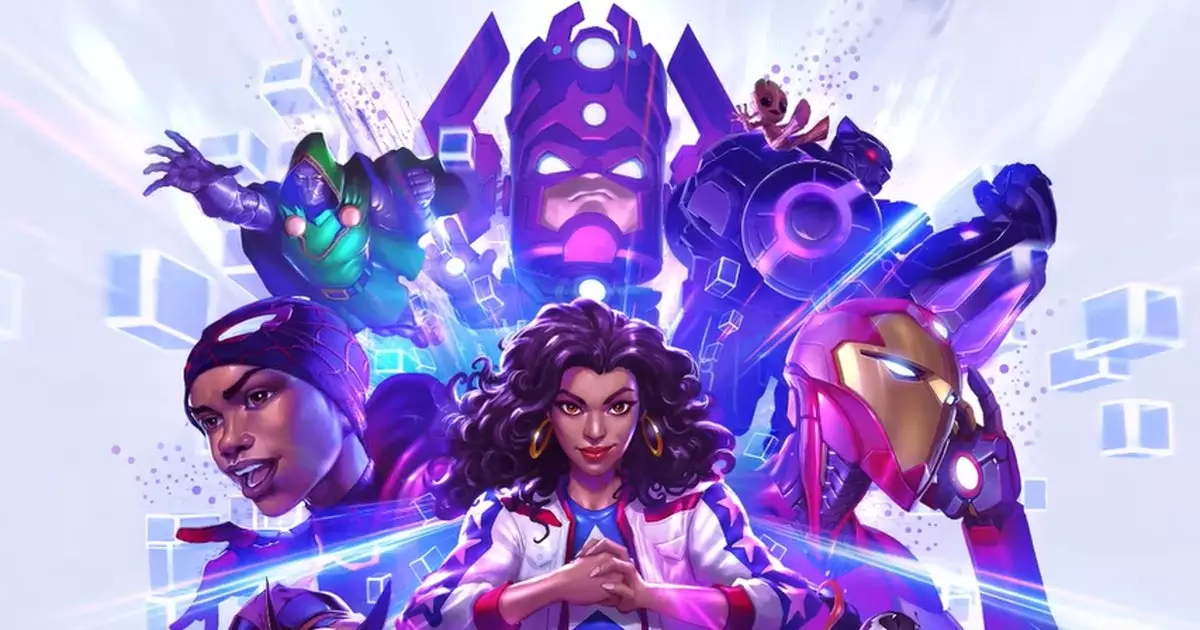The abrupt removal of Marvel Snap from the U.S. market on January 18th serves as a poignant example of how geopolitical tensions manifest in the business realm, particularly for gaming enthusiasts. In a dramatic turn of events, the superhero card game developed by Second Dinner is now offline, raising questions about the future of not only Marvel Snap but also other applications linked to TikTok’s parent company, ByteDance. While mobile gamers faced a rude awakening without any prior notice, the underlying reasons reflect broader concerns about national security, privacy, and the influence of foreign technology firms on American users.
Understanding the complexities of this situation requires us to revisit the U.S. government’s ongoing campaign against ByteDance, driven by suspicions that the company could facilitate espionage. With TikTok’s immense popularity—boasting a staggering 170 million users in the U.S.—lawmakers have increasingly vocalized fears over the platform’s data policies. They argue that American citizens’ private information could be vulnerable to the Chinese government’s prying eyes. As a result, legislators mandated in March 2024 that ByteDance divest itself of TikTok or face the steep consequence of losing access to the American market entirely. This deliberation has cast a long shadow, extending its reach beyond social media into the gaming sector, which is now grappling with the fallout.
This unprecedented linkage between TikTok and Marvel Snap creates a broader dialogue about culpability and the ramifications of governance in the digital landscape. As players lost access to the Marvel Snap app, many were left bewildered, questioning whether such disruptions could seep into their gaming experiences more frequently than anticipated.
In response to the untimely shutdown, the developers at Second Dinner, along with their publisher Nuverse—owned by ByteDance—quickly issued statements expressing their dismay at the unforeseen situation. They assured fans that efforts were underway to restore the game’s functionality within a 24-hour window. This proactive communication from the developers is crucial in maintaining player trust during turbulent times. However, the precarious position of the developers raises broader concerns about autonomy in a marketplace increasingly governed by external political pressures.
Compounding the confusion, other Nuverse titles, such as Ragnarok X and Earth: Revival – Deep Underground, remain accessible in the U.S. despite the Marvel Snap hiccup. This inconsistency underscores the chaotic and somewhat arbitrary nature of the situation, leaving players questioning the stability of their beloved games.
The Marvel Snap uproar arrives amidst ongoing anxieties within the gaming industry regarding foreign investments and their potential consequences. There is a growing apprehension among players and developers alike about how broader governmental policies could impact gaming experiences. As the industry thrives on engagement, unpredictably severing connections to popular games can alienate audiences, thrusting developers into unwanted territory of justifying their independence from larger entities.
Moreover, streamers, who often rely on games like Marvel Snap for content creation, face an existential crisis, as the inability to access crucial gaming titles threatens their creative outlets. This echoes a larger narrative within the stream-based economy powered by platforms like TikTok, where shared gaming moments can create substantial community engagement. The urgency for a swift resolution to outages like this cannot be overstated for those invested in the gaming culture.
The halt of Marvel Snap is not merely a disruption in gameplay; it is a manifestation of the current tumultuous relationship between technology, regulation, and consumer experience. As Second Dinner endeavors to rectify the situation, the gaming community watches closely, hoping for a quick restoration. The complexities of these international policies underscore the importance of accountability and the need for stability within digital platforms. The repercussions of these actions will stretch far beyond a single card game, potentially redefining the gaming landscape amidst a brace of geopolitical tension. For now, all eyes remain peeled for updates as players await their chance to resume snapping marvelously once more.


Leave a Reply